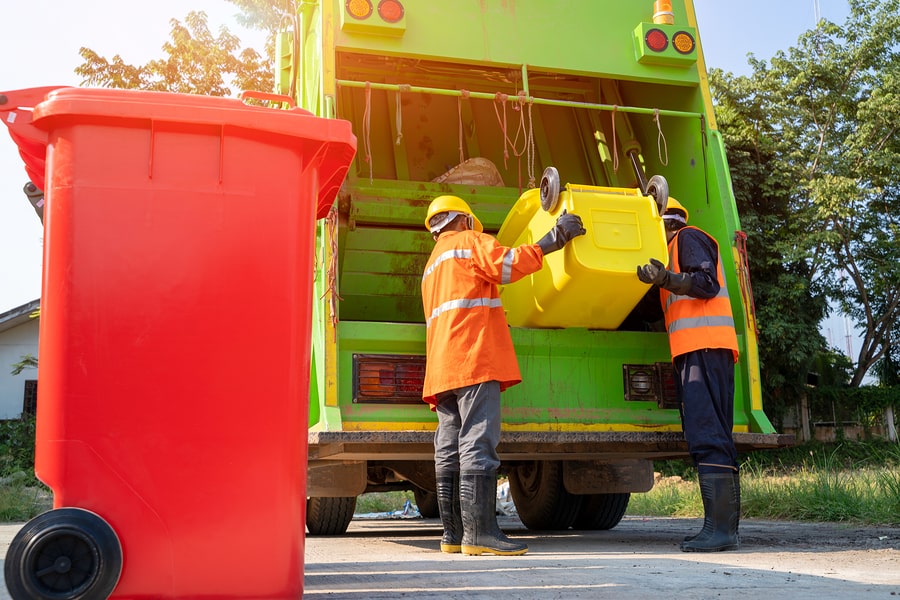The sheer size and weight of large commercial trucks significantly increase the risks of catastrophic injuries and extensive damage in the event of an accident. Collisions involving dump trucks and garbage trucks pose an even higher risk because they often haul extremely heavy loads. Heavy loads coupled with a shorter wheelbase, characteristic of dump and garbage trucks, significantly increases the possibility of a rollover accident. Additionally, when these trucks are involved in an accident, spilled cargo can greatly increase the extent of the resulting damage.

New York City has special regulations that specifically apply to commercial vehicles traveling on city streets. The special rules are intended to decrease the occurrence of accidents. However, as with all motor vehicle accidents, despite the most cautious driving, some commercial truck accidents are simply unavoidable. To further reduce the number of accidents, the city is extending its Off-Hours Delivery Program, which allows trucks to deliver when traffic is more manageable.
Causes of Dump and Garbage Truck Accidents
A variety of factors can contribute to causing an accident involving a dump truck or garbage truck. Sometimes accidents occur without any fault of the truck driver. For instance, another driver’s behavior may ultimately cause a collision.
Additionally, parties who are not physically involved in the accident may, ultimately, be responsible, for example:
- The maintenance crew that repairs and maintains the trucks may be responsible if they improperly or inadequately serviced the vehicle if their mistake contributed to causing the accident.
- The inspector, whether it is the driver or a third party. Federal regulations instruct trucking companies to hire inspectors or require drivers to inspect their vehicles before every shift. While it is often a requirement to inspect a truck before it goes out on the road, it is more common among vehicles that travel longer distances than those who primarily travel locally.
- The dispatcher, if he or she “encourages” the driver to deliver a load by a specific, unattainable time. If the dispatcher knows that a driver abiding by the speed limits and hour of service regulations cannot make the assigned time, they may be responsible for an accident.
- Road conditions that could cause a driver to lose control, even if the driver is not driving too fast for conditions.
- Weather, even if the driver is driving at an appropriate speed for the conditions. For example, an unexpected high gust of wind or a patch of black ice could cause a driver to lose control, even at slow speeds.
- A truck owner, who is not the driver, that does not allow the driver to take his or her truck in for repairs. For example, an owner who is trying to save money, might tell a driver to wait on replacing tires with very little tread. Similarly, they may encourage drivers to wait for brake repair, despite the driver complaining about a low brake pedal or leaking brake fluid.
- An overloaded truck.
- A truck that is improperly loaded or secured, though this is more common with tractor-trailer trucks than it is with dump trucks and garbage trucks.
Injuries Caused by Truck Accidents
While injuries may be as minor as bumps, bruises, cuts, and scrapes, they are often more severe. Truck accident injuries commonly include:
- Death.
- Traumatic brain injuries.
- Spinal cord and back injuries.
- Paralysis.
- Disfigurement.
- Burns.
- Head, neck, and shoulder injuries.
- Internal injuries.
- Simple and compound fractures.
- Strains, sprains, pulled muscles, torn muscles, and other soft tissue injuries. Torn muscles may require additional surgery or physical therapy.
- Road rash.
Any injury that results in an open wound, whether the wound happened during the accident or because of surgery, is susceptible to infection. Individuals with compromised immune systems, either from disease or treatment, such as chemotherapy, are at a much higher risk of contracting an infection. Injuries that take longer to heal or become infected often need additional medical care.
Recoverable Damages
New York law entitles injured victims to recover three types of damages: economic damages, non-economic damages, and punitive damages.
Economic Damages
Special damages, or economic damages, refer to tangible damages, such as medical bills, that can be easily calculated. Economic damages are intended to make victims whole again by compensating them for the money they spent on treatment for their injuries.
Economic damages may include:
- Past medical expenses.
- Future medical expenses, including additional surgeries, treatment for infections, physical therapy, cognitive therapy, and psychological therapy.
- Past lost wages.
- Future lost wages.
- Medical equipment expenses, such as ambulatory aids, oxygen, and other equipment.
- Replacement or repair of personal property, including objects inside the vehicle that were damaged or destroyed.
- Funeral and burial expenses.
Non-Economic Damages
General damages, or non-economic damages, are those that do not have a set dollar amount attached. Non-economic damages account for impacts caused by the injuries beyond medical bills, and are oftentimes awarded for injuries requiring long term recovery or resulting in permanent disability. Most insurance companies have their own definition of long-term or permanent disabilities caused by accidents. However, the Social Security Administration defines long-term as a disability as limitations expected to last longer than 12 months or that will ultimately result in death.
Non-economic damages may include:
- Physical and mental pain and suffering.
- Loss of companionship if you cannot take part in family activities.
- Loss of consortium if you can no longer have a physical relationship with your spouse.
- Loss of use of a body part or function, such as a hand or your eyesight.
- Disfigurement.
- Scarring from road rash, burns, or other wounds.
- Emotional hardships, including post-traumatic stress disorder, depression, and anxiety.
- Physical hardships, including those that require ambulatory and other aids.
- Inconvenience, if you have to hire someone to do chores you were capable of before the accident, including cooking, cleaning, home maintenance, and yard maintenance.
Punitive Damages
Unlike economic and non-economic damages, which make injured victims whole, punitive damages are awarded as punishment for especially egregious behavior.
If you suffered injuries or lost a loved one in a dump truck or garbage truck accident, contact a car accident lawyer for answers to your questions and an evaluation of your case.



